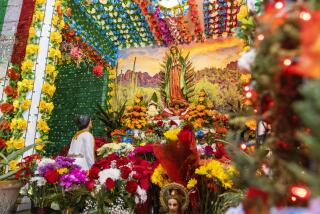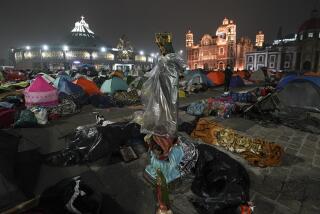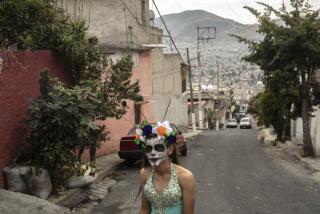Another COVID-19 casualty: Mexico’s traditional celebration of the Virgin of Guadalupe
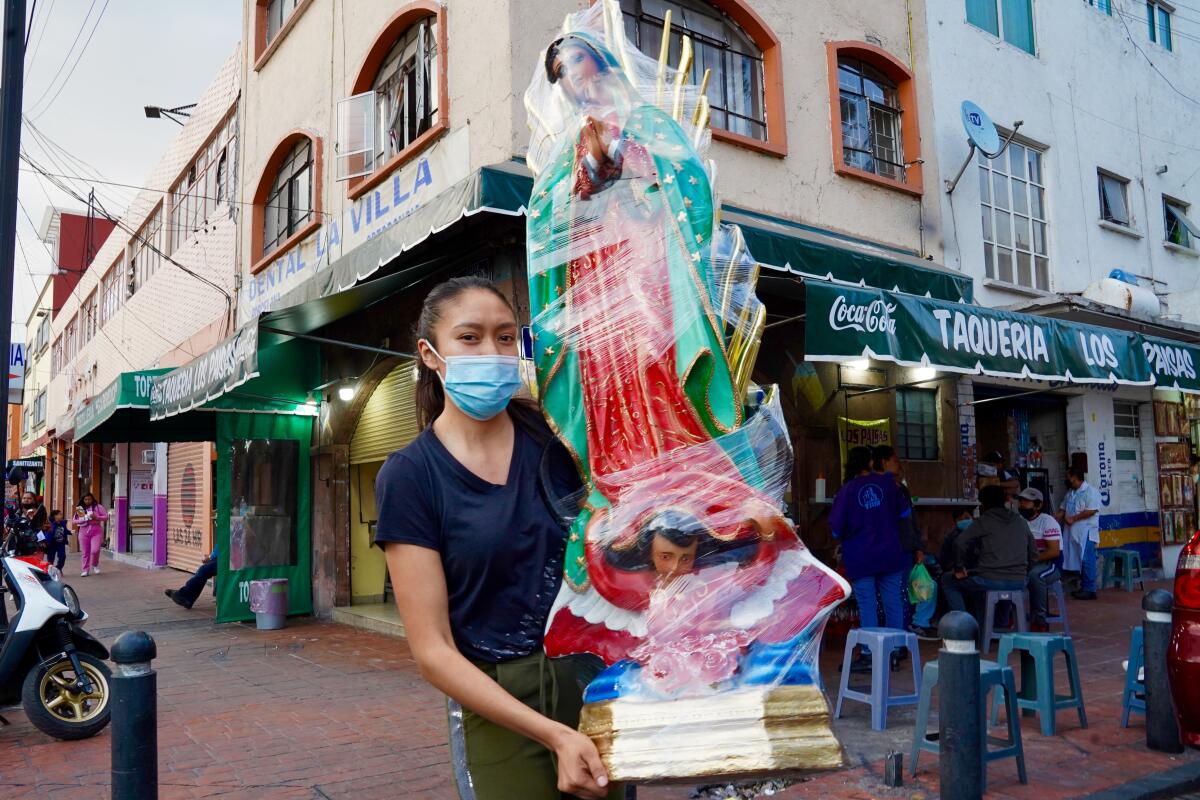
MEXICO CITY — The Ramírez Navarro family couldn’t fail to pay homage to their beloved protector, especially in these most trying of times.
“We come every year to give thanks to la virgencita, and ask for her help,” said Brenda Ramírez Navarro, 23, who lugged an almost life-size statue of the Virgin of Guadalupe. “We had hoped to see her again this year. But unfortunately, we couldn’t.”
The family confronted an almost unimaginable scene: The shrine of Our Lady of Guadalupe, site of the one of the world’s largest annual religious pilgrimages, shuttered on the days when multitudes of worshipers — some on their knees, some in Indigenous dress, some dancing, singing and otherwise displaying raw devotion — would normally gridlock the area around the iconic venue in the northern reaches of Mexico City.
Bowing to the COVID-19 pandemic, Catholic and civic leaders canceled this year’s celebrations, which usually draw up to 10 million fervent disciples, including many who travel long distances to give thanks and seek the protection of the patron saint of Mexico. Saturday was the actual feast day, but visitors began arriving weeks before, many camping along the route.
The shrine, the most visited Roman Catholic site in the Americas — and second in the world only to the Vatican — was closed from Thursday through Sunday. A massive security deployment sealed off nearby streets. The basilica’s environs took on a ghost-town appearance except for the overwhelming police presence.
The shutdown came as Mexico is experiencing an alarming spike in coronavirus cases. Mexico City, home to almost 9 million people, is at the epicenter. Mayor Claudia Sheinbaum warned Friday of a COVID-19 emergency and issued an urgent” appeal for people to stay home.
Mexico reported 12,253 new coronavirus cases on Friday, a single-day record, along with 693 deaths, part of a general upward trend in infections since October. Hospitals in the capital were nearing 80% capacity this week.
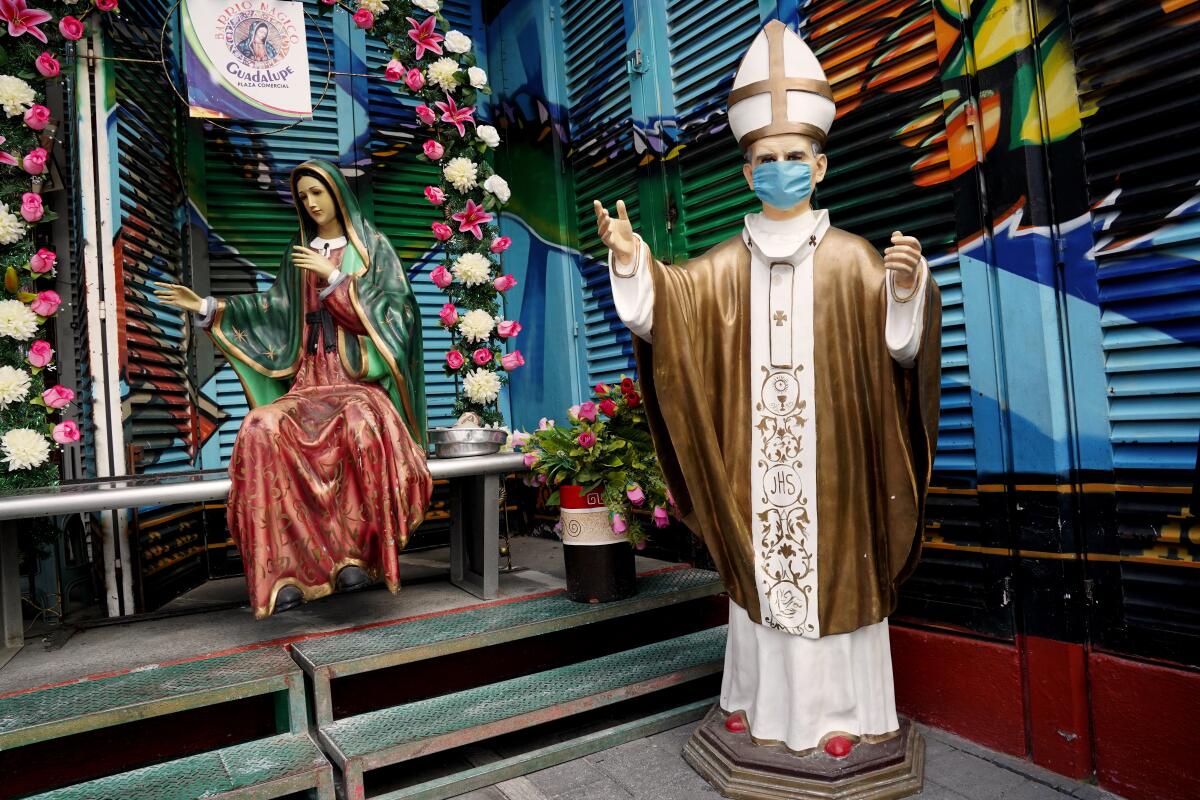
Mexican President Andrés Manuel López Obrador has refrained from issuing national stay-at-home or mask-wearing orders. But local governments in Mexico City and elsewhere have limited the hours of restaurants, bars and other venues, restricted large gatherings and mandated face coverings on public transportation and elsewhere. Compliance has been uneven, especially during the holiday season, and traffic jams, crowded trains and buses are again the norm in the capital.
“Staying off the streets is not enough,” warned Hugo López-Gatell, assistant secretary of health, urging Friday that people should avoid groups of any size, even at home. “This is not over, although we are all fed up.”
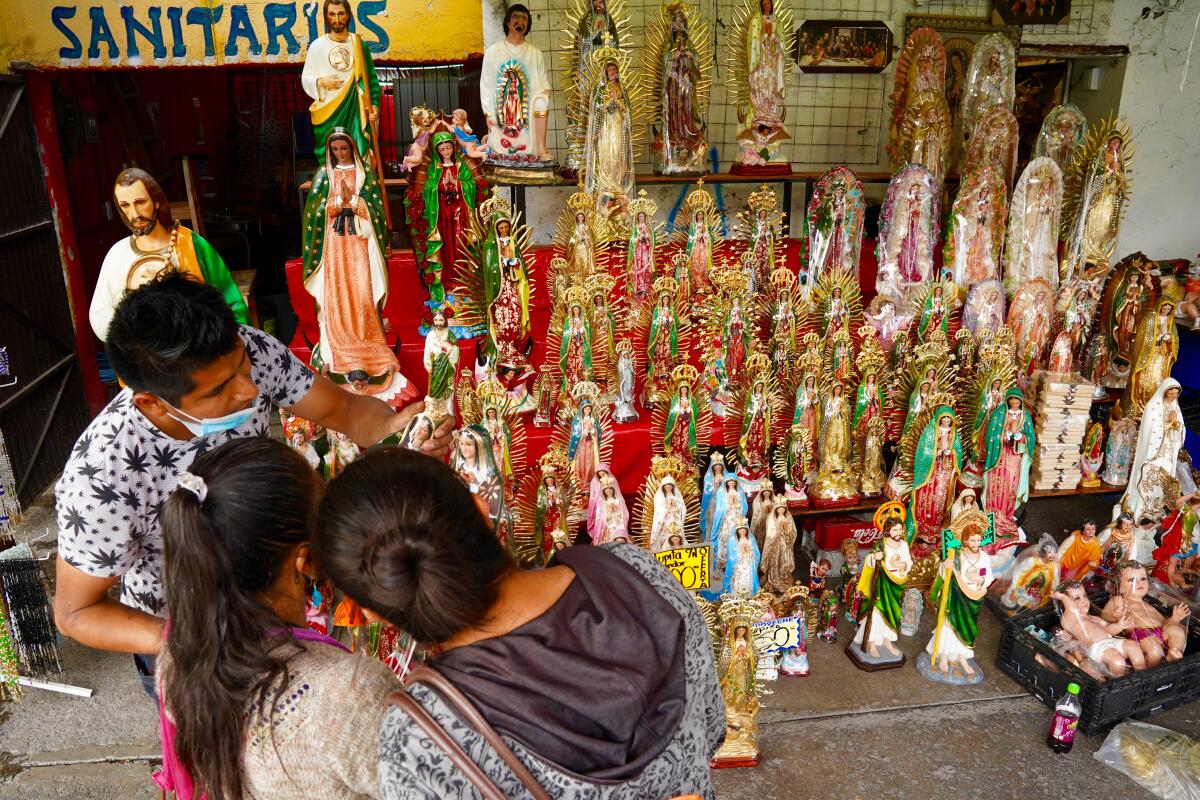
Officially, Mexico has reported more than 1.2 million infections and 113,019 deaths, ranking fourth in the world in fatalities after the United States, Brazil and India, according to Johns Hopkins University. But health officials concede that Mexico’s extremely low testing rate means that the totals of both cases and deaths are some unknown order of magnitude greater than official tallies.
For weeks, church and civic authorities have been urging people to stay away from the storied shrine — erected alongside the hillside where, according to Catholic teaching, Mary, the Mother of Jesus, appeared to a peasant, Juan Diego, in 1531, just a decade after the Spanish conquest. The apparition and the central artifact of veneration — an image of the Virgin that is said to have been imprinted on Juan Diego’s cloak, which is now preserved and on view at the shrine via a moveable walkway — helped solidify Catholicism among Mexico’s indigenous masses.
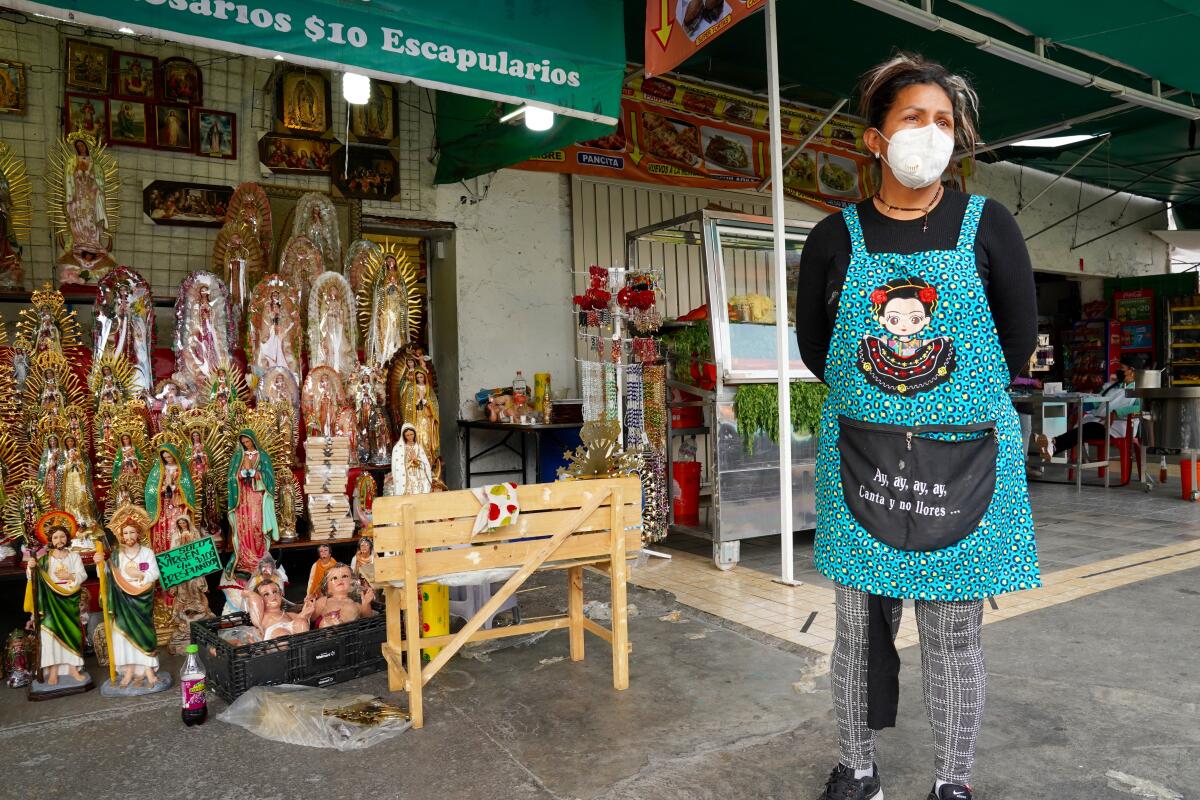
The Virgin of Guadalupe is a symbol of Mexico for residents and for immigrants and their descendants in the United States and elsewhere. Adherents proudly declare themselves guadalupanos, or devotees of the Virgin, who is revered as a champion of the less fortunate and a source of miracles. Newborn girls and boys are her daily namesakes.
This year, devotees were asked to honor the Virgin at home or in virtual events. Traditionally, guadalupanos gather to sing “Las Mañanitas,” the Mexican birthday serenade, and eat tamales on the evening of Dec. 11 and in the early hours of Dec. 12. Fireworks sounded across the capital in Saturday’s predawn darkness, even as the area around the basilica was largely deserted.
Despite the well-advertised shutdown, many couldn’t resist the urge to approach the shrine, though they couldn’t get closer than three blocks or so from the sprawling complex. Visitors took selfies with a distant backdrop of the gold-domed cupolas of the 18th century church or of the soaring arc of the Modernist basilica, which dates from the 1970s.
“I’ve been coming here for 38 years, and I wasn’t going to miss this year,” said Tito López, 54, a state worker who walked here with his wife in a four-hour trek from Nezahualcoyotl, a gritty Mexico City suburb hard hit by the coronavirus. “The Virgin allowed me to survive the year and remain healthy. I felt obliged to come and thank her.”
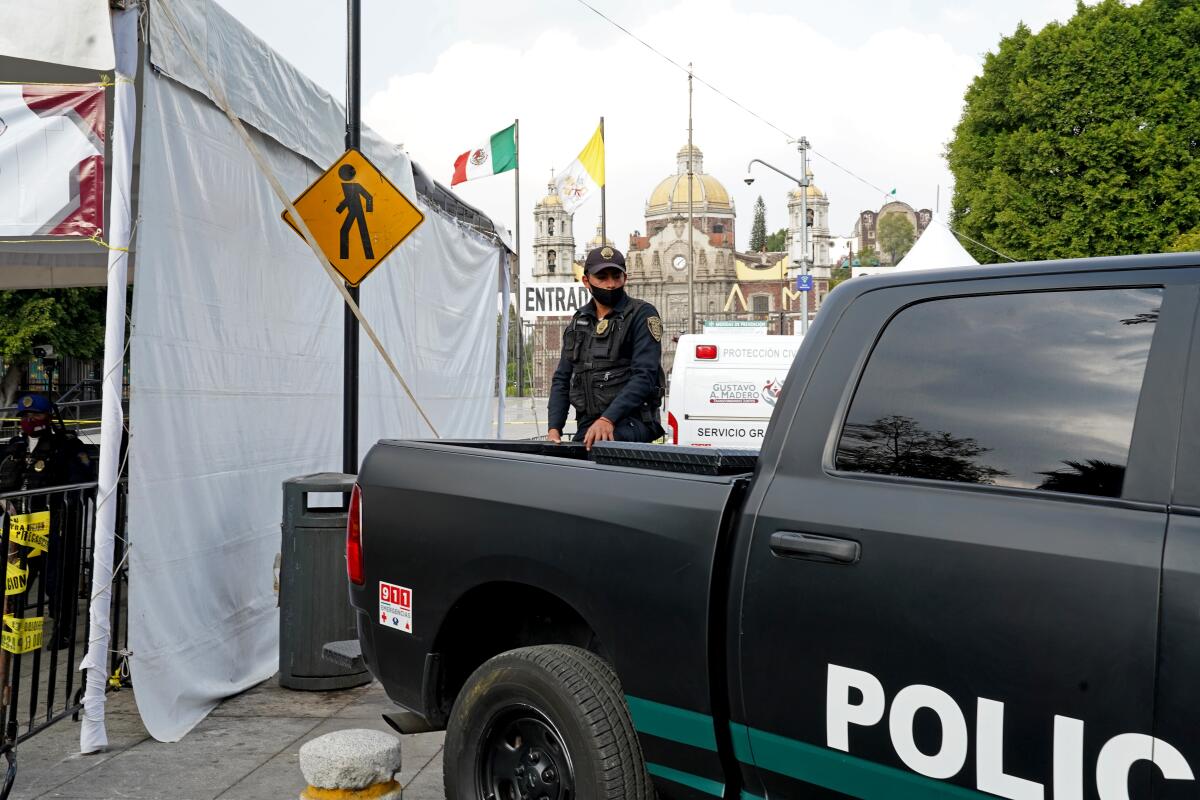
The shutdown was especially devastating for the many merchants along the pilgrimage route. These days account for most of their annual income.
“I know it’s dangerous to be outside, but the need to work means I must be here, even though there is so little business,” lamented Carmen Delia Bobadilla, 48, a mother of six who runs one of the plethora of shops hawking statues and other religious items. “We cannot lose our faith, even in these times of crisis.”
After being stopped short by police barricades, the Ramírez Navarro family headed back via public transportation to their home in Pachuca, about 55 miles northeast of the capital.
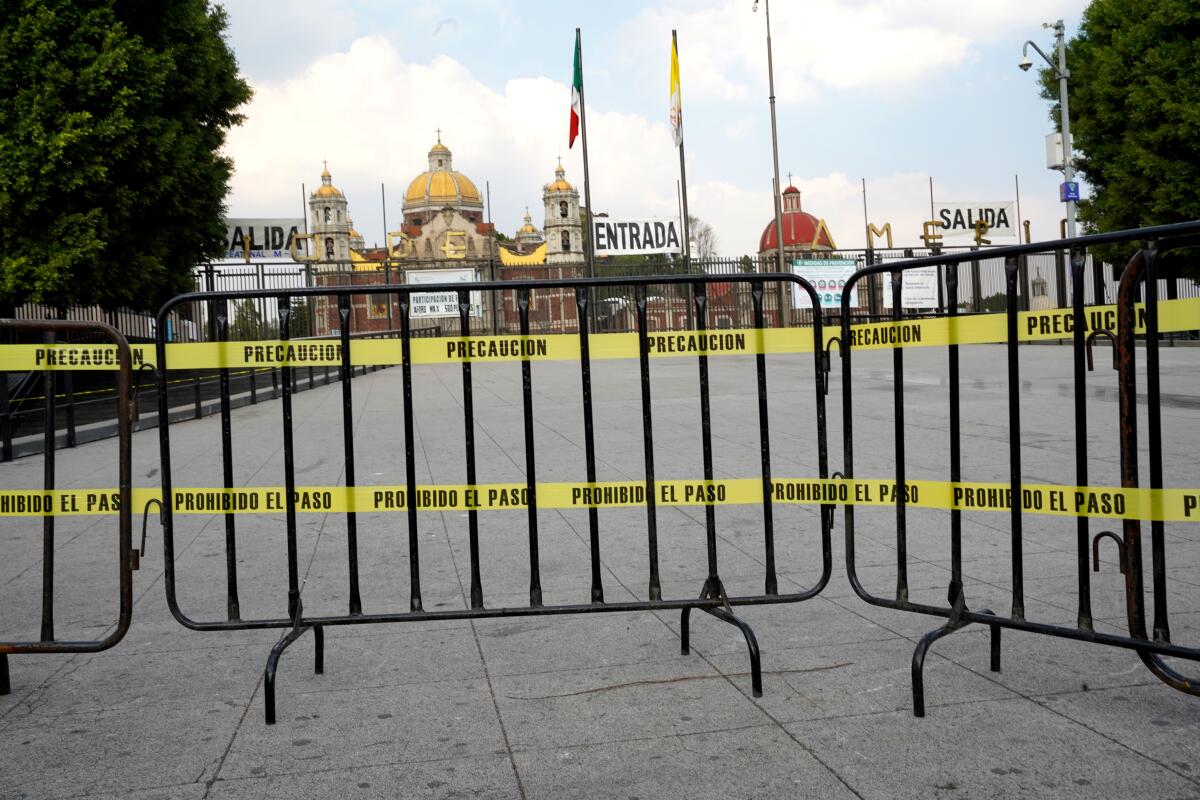
Brenda Ramírez Navarro had hoped to have a priest bless the large statue of the Virgin that she was carrying. That wasn’t possible. “But my mother said that the Virgin blessed it anyway, even from far away,” she said.
Her mother, Teresa Ramírez, 61, had a timely request.
“I asked la virgencita to stop this COVID because it is killing way too many people,” the mother said. “She is the only one who can help us end this terrible sickness that has inflicted so much damage. I prayed to her to end the COVID. I’m sure that she will listen.”
Sánchez is a special correspondent. Special correspondent Liliana Nieto del Rio contributed to this report.
More to Read
Sign up for Essential California
The most important California stories and recommendations in your inbox every morning.
You may occasionally receive promotional content from the Los Angeles Times.
